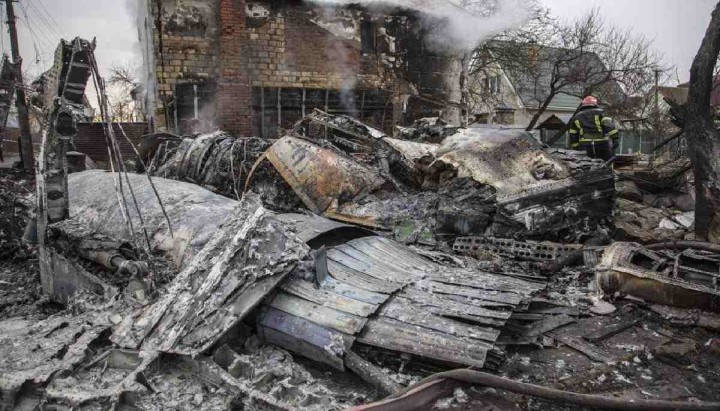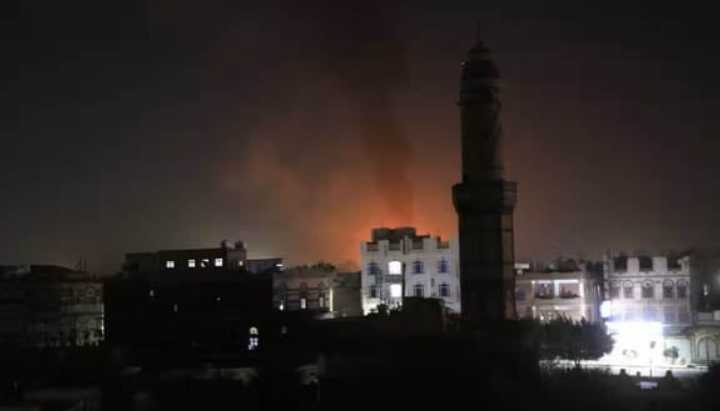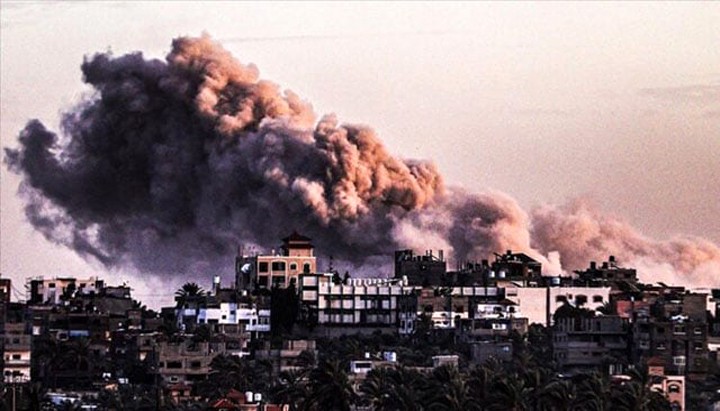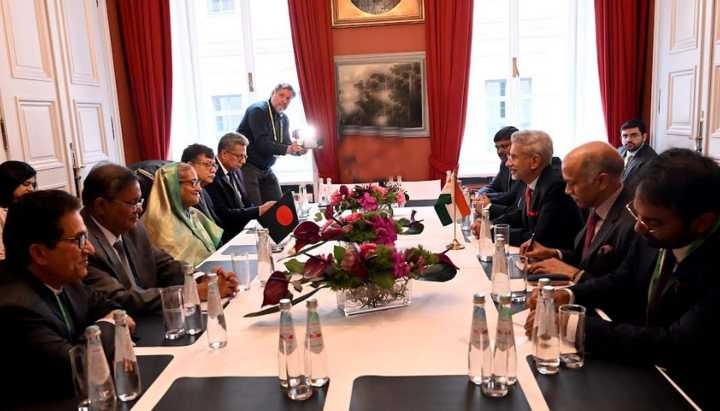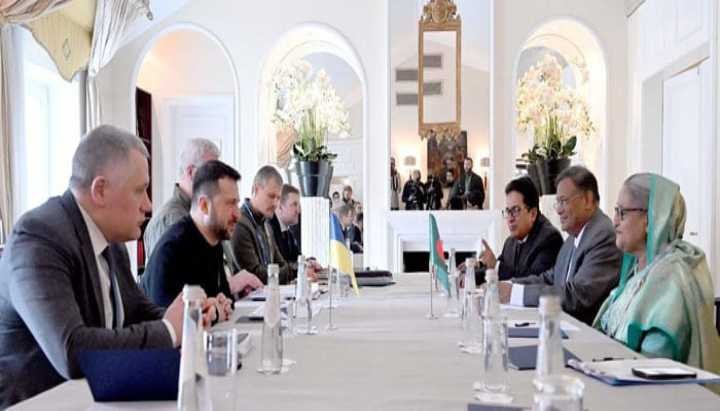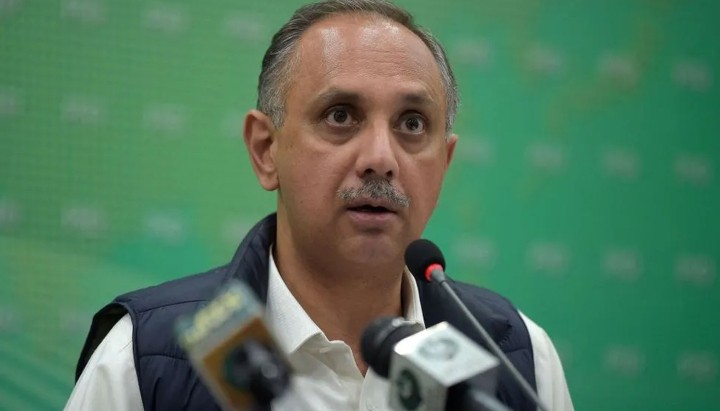Russian troops stormed toward Ukraine’s capital early
Saturday, and street fighting broke out as city officials urged residents to
take shelter. The country’s president refused an American offer to evacuate,
insisting that he would stay. “The fight is here,” he said.
The clashes followed two days of fighting that resulted in
hundreds of casualties and pummeled bridges, schools and apartment buildings.
U.S. officials believe Russian President Vladimir Putin is determined to
overthrow Ukraine’s government and replace it with a regime of his own.
The assault represented Putin’s boldest effort yet to redraw
the world map and revive Moscow’s Cold War-era influence. It triggered new
international efforts to end the invasion, including direct sanctions on Putin.
As his country confronted explosions and gunfire, and as the
fate of Kyiv hung in the balance, Ukraine President Volodymyr Zelenskyy
appealed for a cease-fire and warned in a bleak statement that multiple cities
were under attack.
“This night we have to stand firm,” he said. “The fate of
Ukraine is being decided right now.”
Zelenskyy was urged to evacuate Kyiv at the behest of the
U.S. government but turned down the offer, according to a senior American
intelligence official with direct knowledge of the conversation. The official
quoted the president as saying that “the fight is here” and that he needed
anti-tank ammunition but “not a ride.”
City officials in Kyiv urged residents to take shelter, to
stay away from windows and to take precautions to avoid flying debris or
bullets.
The Kremlin accepted Kyiv’s offer to hold talks, but it
appeared to be an effort to squeeze concessions out of the embattled Zelenskyy
instead of a gesture toward a diplomatic solution.
The Russian military continued its advance, laying claim
Friday to the southern Ukraine city of Melitopol. Still, it was unclear in the
fog of war how much of Ukraine is still under Ukrainian control and how much or
little Russian forces have seized.
As fighting persisted, Ukraine’s military reported shooting
down an II-76 Russian transport plane carrying paratroopers near Vasylkiv, a
city 25 miles (40 kilometers) south of Kyiv, an account confirmed by a senior
American intelligence official. It was unclear how many were on board.
Transport planes can carry up to 125 paratroopers.
A second Russian military transport plane was shot down near
Bila Tserkva, 50 miles (85 kilometers) south of Kyiv, according to two American
officials with direct knowledge of conditions on the ground in Ukraine.
The Russian military has not commented on either plane.
The U.S. and other global powers slapped ever-tougher
sanctions on Russia as the invasion reverberated through the world’s economy
and energy supplies, threatening to further hit ordinary households. U.N.
officials said millions could flee Ukraine. Sports leagues moved to punish
Russia and even the popular Eurovision song contest banned it from the May
finals in Italy.
Through it all, Russia remained unbowed, vetoing a U.N.
Security Council resolution demanding that it stop attacking Ukraine and
withdraw troops immediately. The veto was expected, but the U.S. and its
supporters argued that the effort would highlight Moscow’s international
isolation. The 11-1 vote, with China, India and the United Arab Emirates
abstaining, showed significant but not total opposition to Russia’s invasion of
its smaller, militarily weaker neighbor.
NATO, meanwhile, decided to send parts of the alliance’s
response force to help protect its member nations in the east for the first
time. NATO did not say how many troops would be deployed but added that it
would involve land, sea and air power.
Day Two of Russia’s invasion, the largest ground war in
Europe since World War II, focused on the Ukrainian capital, where Associated
Press reporters heard explosions starting before dawn. Gunfire was reported in
several areas.
A large boom was heard in the evening near Maidan
Nezalezhnosti, the square in central Kyiv that was the heart of protests which
led to the 2014 ouster of a Kremlin-friendly president. The cause was not
immediately known.
Five explosions struck near a major power plant on Kyiv’s
eastern outskirts, said Mayor Vitaly Klitschko. There was no information on
what caused them, and no electrical outages were immediately reported.
It was unclear how many people overall had died. Ukrainian
officials reported at least 137 deaths on their side from the first full day of
fighting and claimed hundreds on the Russian one. Russian authorities released
no casualty figures.
U.N. officials reported 25 civilian deaths, mostly from
shelling and airstrikes, and said that 100,000 people were believed to have
left their homes. They estimate that up to 4 million could flee if the fighting
escalates.
Zelenskyy tweeted that he and U.S. President Joe Biden spoke
by phone and discussed “strengthening sanctions, concrete defense assistance
and an antiwar coalition.”
Late Friday, Biden signed a memo authorizing up to $350
million in additional security assistance to Ukraine, bringing the total
security assistance approved for Ukraine to $1 billion over the past year. It
was not immediately clear how quickly the aid would flow.
Zelenskyy’s whereabouts were kept secret after Zelenskyy
told European leaders in a call Thursday that he was Russia’s No. 1 target —
and that they might not see him again alive. His office later released a video
of him standing with senior aides outside the presidential office and saying
that he and other government officials would stay in the capital.
Zelenskyy earlier offered to negotiate on a key Putin
demand: that Ukraine declare itself neutral and abandon its ambition of joining
NATO. The Kremlin said Kyiv initially agreed to have talks in Minsk, then said
it would prefer Warsaw and later halted communications. Russian Foreign
Ministry spokeswoman Maria Zakharova said later that Kyiv would discuss
prospects for talks on Saturday.
The assault was anticipated for weeks by the U.S. and
Western allies and denied to be in the works just as long by Putin. He argued
the West left him with no other choice by refusing to negotiate Russia’s
security demands.
In a window into how the increasingly isolated Putin views
Ukraine and its leadership, he urged Ukraine’s military to surrender, saying:
“We would find it easier to agree with you than with that gang of drug addicts
and neo-Nazis who have holed up in Kyiv and have taken the entire Ukrainian
people hostage.”
Playing on Russian nostalgia for World War II heroism, the
Kremlin equates members of Ukrainian right-wing groups with neo-Nazis.
Zelenskyy, who is Jewish, angrily dismisses those claims.
Putin has not disclosed his ultimate plans for Ukraine.
Foreign Minister Sergey Lavrov gave a hint, saying, “We want to allow the
Ukrainian people to determine its own fate.” Putin spokesman Dmitry Peskov said
Russia recognizes Zelenskyy as the president, but would not say how long the
Russian military operation could last.
Ukrainians abruptly adjusted to life under fire, after
Russian forces invaded the country from three sides as they massed an estimated
150,000 troops nearby.
Residents of a Kyiv apartment building woke to screaming,
smoke and flying dust. What the mayor identified as Russian shelling tore off
part of the building and ignited a fire.
“What are you doing? What is this?” resident Yurii Zhyhanov
asked Russian forces. Like countless other Ukrainians, he grabbed what
belongings he could, took his mother, and fled, car alarms wailing behind him.
Elsewhere in Kyiv, the body of a dead soldier lay near an
underpass. Fragments of a downed aircraft smoked amid the brick homes of a
residential area. Black plastic was draped over body parts found beside them.
People climbed out of bomb shelters, basements and subways to face another day
of upheaval.
“We’re all scared and worried. We don’t know what to do
then, what’s going to happen in a few days,” said Lucy Vashaka, 20, a worker at
a small Kyiv hotel.
At the Pentagon, press secretary John Kirby said the U.S.
believes the offensive, including its advance on Kiev, has gone more slowly
than Moscow had planned, noting that Ukraine forces have been fighting back.
But he also said the military campaign is in an early stage and circumstances
can change rapidly.
The Biden administration said Friday that it would move to
freeze the assets of Putin and Lavrov, following the European Union and Britain
in directly sanctioning top Russian leadership.
Zakharova, the Russian Foreign Ministry spokeswoman, called
the sanctions against Putin and Lavrov “an example and a demonstration of a
total helplessness” of the West.


